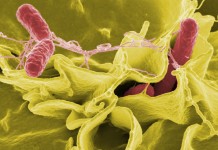Friday, December 4, 2015 at 8:00 PM
Abstract

In the US, health among the most privileged is not bad; health among the disadvantaged is simply awful. In Baltimore MD, for example, men in the most down-at-the -heels part of the city can expect to live twenty years less than men in the leafiest part. Twenty years is enormous. The difference in life expectancy between men in the US and men in India is “only” 12 years. In India, national income adjusted for purchasing power is $5,150, one tenth that in the US, and a third of the population lives on $1.25 a day or less. It is unthinkable that anyone in the US could live on a yearly income of $5,150, let alone on $1.25 a day. Yet men in the poorest part of Baltimore have shorter life expectancy of 63 years, less than the Indian average of 64.7 years.
The average American, with a modicum of empathy and concern for the poor, might ask: what does this have to do with me? The answer is: a great deal. First, the chances that the average American boy, age 15, will die before his 60th birthday is higher than in 49 other countries. Second, and linked, health inequalities, the health gap, is not confined to differences between poor and rich, but there is a social gradient in health – the higher the social position the better the health. Those of us in the “middle’ of the distribution are involved. Health inequalities are dragging down health of the average as well as being morally indefensible.
There is clear evidence when we look across countries that national policies make a difference. But policies must not be confined to the health care system; they need to address the conditions in which people are born, grow, live, work and age. The evidence shows that economic circumstances are important but are not the only drivers of health inequalities.
Speaker

Michael G. Marmot is Professor of Epidemiology and Public Health and Director of the Institute of Health Equity at University College London, and he is President of the World Medical Association and President of the British Lung Foundation. He has been a UCL faculty member throughout his career, except for a brief attachment to the Medical Council just after completing his PhD.
Michael has led research groups on health inequalities for over 35 years, and he has long been a leading figure working at the highest levels of policy and governance to bring adequate medical care to everyone, regardless of status, location and income, not only in the UK but throughout the world.
He is a Principal Investigator of the Whitehall II Studies of British Civil Servants, investigating explanations for the striking inverse social gradient in morbidity and mortality. He leads the English Longitudinal Study of Ageing (ELSA). And he is involved in several international research efforts on the social determinants of health.
Previously he served as Chair of the Commission on Social Determinants of Health of the World Health Organization, led the British Government’s “Strategic Review of Health Inequalities in England Post 2010” and WHO Euro’s European Review of Social Determinants of Health and the Health Divide. He served as Chair of theBreast Screening Review for the NHS National Cancer Action Team and served on The Lancet-University of Oslo Commission on Global Governance for Health. He also served as a member of the Royal Commission on Environmental Pollution.
Among many honors, he was knighted by Queen Elizabeth for services to epidemiology and the understanding of health inequalities. He is a past President of the British Medical Association and a past Vice President of the Academia Europaea. He has been awarded the Balzan Prize for Epidemiology and the William B. Graham Prize for Health Services Research, delivered the Harveian Oration and has been awarded a Harvard Lowns Professorship.
He is a Fellow of the Academy of Medical Sciences, an Honorary Fellow of the British Academy, an Honorary Fellow of the Faculty of Public Health of the Royal College of Physicians, and Foreign Associate Member of the Institute of Medicine.
Michael earned a BSc in Medicine and an MBBS in Clinical Medicine and Surgery at the University of Sydney and an MPH and PhD in Epidemiology at UC-Berkeley. He also has been awarded honorary doctorates from 14 universities worldwide.
Additional information on Professor Marmot and his work is available through the IHE website.














